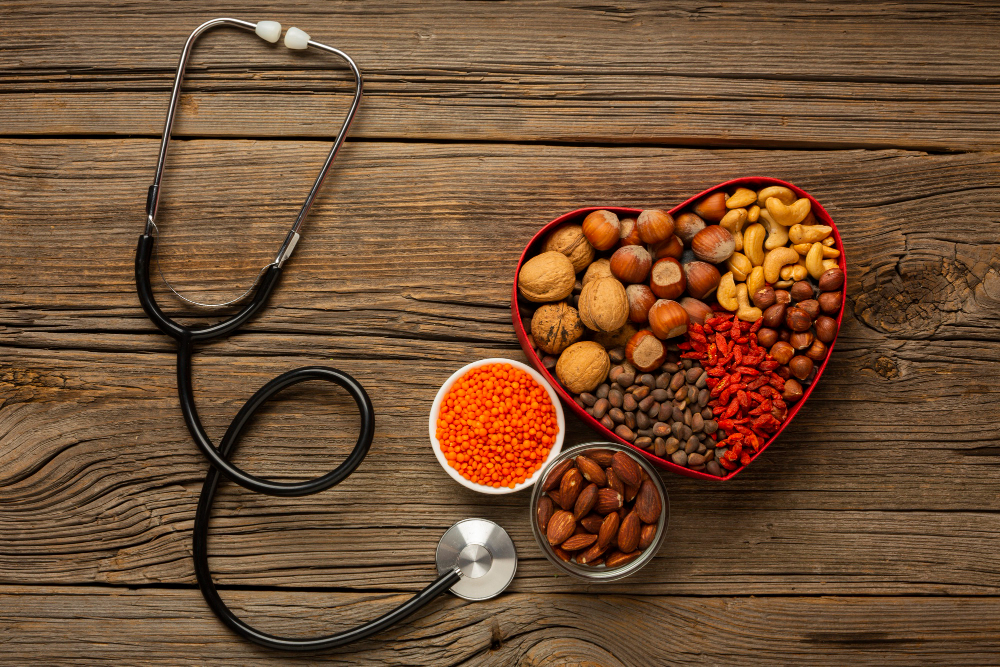
What Is Cholesterol?
Cholesterol is a fatty substance naturally produced by the liver, intestines, and almost all body tissues. It plays a vital role in the production of hormones, vitamin D, and bile, which helps digest dietary fats. Cholesterol also contributes to cell membrane stability, protecting cells from temperature fluctuations.
While cholesterol is essential for many bodily functions, too much cholesterol can be harmful. Excess cholesterol can build up in the arteries, blocking blood flow and increasing the risk of serious conditions like heart attacks or strokes. High cholesterol usually has no symptoms, but it can be detected with a simple blood test.
In many cases, cholesterol levels can be managed through a healthy lifestyle, though medication may be necessary in some instances.
Request an AppointmentTypes of Cholesterol
There are three main types of cholesterol, each with a different role in the body. Blood tests can measure each type individually.
High-Density Lipoprotein (HDL)
Often referred to as the “good” cholesterol, HDL helps remove excess cholesterol from the bloodstream by carrying it back to the liver, where it is broken down and eliminated. Higher levels of HDL may reduce the risk of heart disease and stroke.
Low-Density Lipoprotein (LDL)
Known as the “bad” cholesterol, LDL makes up most of the body’s cholesterol. It can build up in the walls of the arteries, causing narrowing and blockage, which increases the risk of heart disease, stroke, and atherosclerosis.
Very-Low-Density Lipoprotein (VLDL)
VLDL contains a high concentration of triglycerides, along with cholesterol and proteins. Like LDL, it is considered a “bad” cholesterol because it contributes to plaque buildup in the arteries.
A total cholesterol test measures HDL, LDL, and VLDL levels to determine whether cholesterol levels are within a healthy range.
Risk Factors for High Cholesterol
The risk of high cholesterol increases with age, but several lifestyle and health factors can also contribute. Individuals at higher risk include those who:
- Smoke
- Are overweight or obese
- Have diabetes
- Eat a diet high in saturated fat
- Have high blood pressure
- Do not exercise regularly
- Have a family history of high cholesterol or heart disease
Complications of High Cholesterol
If left untreated, high cholesterol can lead to serious health issues, including:
- Atherosclerosis (buildup of cholesterol and fat in the artery walls)
- Coronary artery disease
- Angina (chest pain)
- Heart attack
- Stroke
These complications arise because blocked or narrowed arteries reduce blood flow to critical areas of the body.
Treatment of High Cholesterol
Managing cholesterol usually starts with lifestyle changes, including:
- Adopting a low-fat, heart-healthy diet
- Losing weight if overweight
- Increasing physical activity
- Quitting smoking
- Limiting alcohol intake
If lifestyle changes are not enough, a doctor may recommend cholesterol-lowering medications, such as:
- Statins – Lower LDL cholesterol levels
- Niacin (nicotinic acid) – Raises HDL and lowers LDL
- Fibrates – Reduce triglyceride levels
- Bile acid sequestrants – Help eliminate cholesterol through bile acid removal
While effective, these medications may have side effects, so it’s important to consult with a healthcare provider to determine the best course of treatment.
